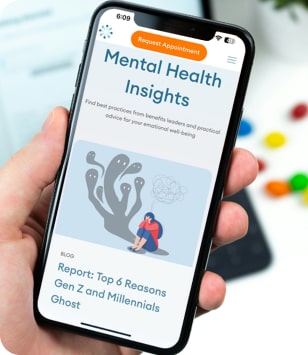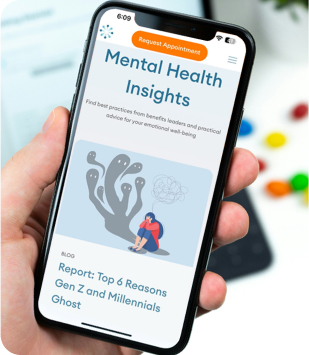Why Emotional Cheating Can be Just as Harmful as Physical Affairs

Cheating is a sore subject for some. People who have been cheated on tend to hold emotional scars and psychological trauma caused by their partner’s infidelity. Cheating not only breaks the trust in a relationship, but it can also cause trust issues in those that have been cheated on, preventing them from forming long-lasting bonds even after the relationship has ended.
In some cases, cheating is more evident with the physical entanglement of a third party. However, cases of emotional infidelity can be subject to debate as many argue that it doesn’t count. But no matter the justification, cheating is still cheating, and emotional cheating can be just as bad or even worse than physical affairs.
Emotional Cheating vs. Physical Affairs
Physical affairs are easier to define. It involves one member of the relationship having face-to-face contact with a person outside the relationship without their partner’s knowledge. If the person is in an open relationship, it is not counted as cheating as long as the other person in the relationship has consented to this interaction.
Although it typically involves sex, physical affairs are not solely defined by it. Even if you’ve just kissed or gone out on a few dates, it still counts as a physical affair if you’ve been acting in the guise of a single person despite being in a relationship.
On the other hand, emotional cheating does not require physical contact. Emotional cheating happens when one person in the relationship develops feelings for another person and enacts on it. The emotional affair begins as the person forms an emotional intimacy with the third party through flirty texts, phone calls, and in-person conversations.
But if an emotional affair can include physical interactions, what makes it different from a physical affair? Well, in physical affairs, the relationship can be more apparent in a romantic sense. Emotional affairs, on the other hand, can often be veiled under the pretense of friendship.
The cheating partner can brush off their partner’s concerns saying that the suspected third party is just a friend. They may even justify themselves by saying they aren’t doing anything wrong, like going on romantic dates, kissing, or having sex. And yet, the cheating partner still gets the feeling that what they’re doing is wrong. They become more private about their conversations with their supposed friend and become defensive when their partner brings them up.
Don’t be mistaken. You can still have close and healthy friendships even when you’re in a relationship. The difference, however, is that both parties in the friendship respect the relationship of the other person and only form friendly attachments. There are no romantic feelings involved, and there is trust in both the relationship and friendship.
The Effect of Emotional Cheating
By saying emotional affairs don’t count, you dismiss the hurt feelings and psychological trauma experienced by the hurt party. No matter the form of cheating, the trust is broken, and this could have adverse effects.
If these trust issues remain unsolved, the person cheated on can no longer form healthy relationships with other people. They can become paranoid and feel threatened by their partner’s friendships. They can try to restrict these friendships as an effect of their psychological trauma. And in turn, this can damage the relationship.
How to Overcome the Effects of Emotional Cheating
It is essential to understand that friendships are necessary for a person’s social and emotional development. You cannot be your partner’s everything. Having individual lives and healthy friendships are essential in a healthy and long-lasting relationship.
And no matter how hard you try to prevent it, a person will cheat if they want to. You cannot stop them. And you shouldn’t put that responsibility on yourself.
It may be hard to overcome the psychological trauma from emotional cheating, but with the help of a mental health counselor, you can heal and love again. Just know that it’s not your fault and that what has happened before won’t always happen again.
Final Thoughts
Whether physical or emotional, cheating is cheating. And once the trust is broken, it can be very difficult to build back. But know that you deserve better and that you can get better in time.
Overcome the effects of cheating with the help of a mental health therapist from the Thriving Center of Psychology. At our practices in Midtown and Soho, NYC, Los Angeles, CA, and Miami, FL, we lead our clients on an exploration of self-discovery and help them refocus their attention on what truly matters to them. Schedule an appointment now!

Sustaining Love: What to Do When the Honeymoon Phase Fades
There’s nothing quite like that initial attraction and spark where you just can’t get enough of your partner. But as the months and years roll on, it’s normal for relationships to transition through stages, and dynamics can shift.

All a Bad Dream? 1 in 4 Think Their Nightmares Predicted the Future
Americans have a lot on their minds. From navigating daily stress due to work or mental health to grappling with bigger widespread issues like politics, climate change, or crime, it’s safe to say there’s a lot to think about daily. For many, stressors aren’t only encroaching on their minds during waking hours, but also when they try to sleep in the form of nightmares, or bad dreams.

Psychological Challenges with Remote Working
While we can meet our loved ones in person without masks, the pandemic brought some changes that have stuck. Remote working has transformed the workforce. Some companies have chosen a fully remote approach, while others are welcoming their employees back to the office full-time.

Survey: 72% of Americans are Stressing About the Upcoming Presidential Election
Political viewpoints in the U.S. have always been contentious, but is the impact of politics in the United States making it difficult for people to live their everyday lives? With some anticipating another brutal and long campaign season ahead of the upcoming 2024 presidential election, nearly half of Americans say politics is negatively impacting their mental health.




